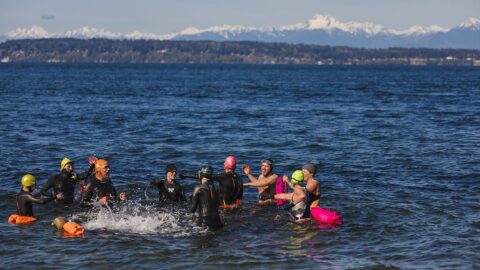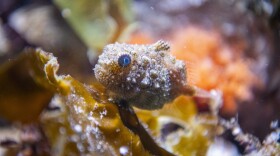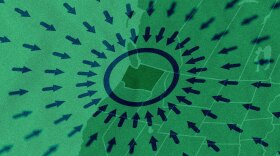-
Cold plungers dunk in Puget Sound's icy waters throughout the winter. Many say it helps their mental and physical health. Research shows they may be onto something.
-
Early images of the asteroid come from the new Vera C. Rubin Observatory in Chile. There's no chance of it hitting Earth, astronomers say; the huge asteroid is about 200 million miles away.
-
The stereotype of Californians moving to Seattle has been the subject of ridicule for decades, but the scale of the California exodus to Washington is shifting.
-
People born outside of Washington state now make up a higher share of Seattle-area residents than locals. But what's driving population growth now is different from a decade ago.
-
University of Washington scientists have worked for years to help bring the Vera C. Rubin Observatory online so it can begin mapping the night sky.
-
A researcher monitoring Axial Seamount, 300 miles off the coast of Oregon, says the eruption is expected to happen before the year is over.
-
The Seattle Pandemic Preparedness Cohort study is designed to give a real-time snapshot of which respiratory viruses are out there and how they are evolving and spreading.
-
Venus, Mars, Jupiter and Saturn are visible to the naked eye in January and for part of February. Uranus and Neptune can only be spotted with binoculars and telescopes.
-
A University of Washington study found benefits, and widespread interest, in the emerging field of psychedelic-assisted therapy for health workers still struggling with COVID-era trauma.
-
The Nobel Prize in chemistry was awarded Wednesday to David Baker, Demis Hassabis and John Jumper for their work with proteins. The awards continue with the literature prize on Thursday.
-
Michael Sanchez was testing out his new camera when he happened upon a feathered subject. The blue rock-thrush he photographed on the coast of northern Oregon last week has excited the birding world.
-
"Science for Everyone" includes 3D-printed statues of women innovators from the Pacific Northwest, a play area to explore STEAM careers and lays out the inequalities that remain in scientific fields.















